
13 minute read
Letters
from Oct. 31, 2013
Modify your sick-day policy
Welcome to this week’s Reno News & Review.
Advertisement
I’m an instructor at the University of Nevada, Reno, right? After class, this week, one of my students was complaining that her employer said she has to get an excuse from her doctor before she can go back to work because she called in sick. She works at Ruby River Steakhouse, and she said she was told that it was a health code.
Well, it’s not. In my opinion, it’s a bullshit policy on the part of the corporate management that encourages the workers to work with communicable diseases, so the management won’t have to deal with scheduling issues.
Here’s how it works. Somebody is sick so they do what any responsible person would do, and they call in. At that point, they are notified of the policy. “I don’t have $130 bucks for urgent care,” they say. “I’ll come in.”
If they don’t come in, they lose any tips they may have made, plus they are out the cost of a doctor’s visit. If they’re like I was when I was working service jobs, they don’t have the money for a doctor’s appointment at all, so they’ll lose their job.
But no, instead they will come in, spreading flu germs to our plates and glasses, eating utensils, even our napkins. They spread the disease among their coworkers, who in turn potentially infect thousands of citizens in Reno, including people who have prior health issues or compromised immune systems and the youngest and oldest among us.
Every restaurant, business or retail outfit needs to rethink its sick day policy. A momentary inconvenience for a single manager can cost the community thousands of personnel hours and millions of dollars. ***
Along other lines, I’m holding the results of the 95-Word Fiction Contest for a week. I’m doing this in part because I didn’t want to draw out this Sparks coverage any longer than necessary, but I feel like we would be failing our readers not to cover it. —D. Brian Burghart brianb@newsreview.com
We’re tight
Re “State of Health” (Feature area, Oct. 11): Thanks to RN&R and Dennis Myers for another great piece, “State of Health.” I have a better understanding of where Nevada is at in terms of health care and also how we got here. Once again, Nevada’s zeitgeist appears to favor the rich and powerful. Maybe Myers would be willing to write another in-depth piece on our state/county tax structures and how they compare to other states/counties nearby? Others seem to be able to maintain schools without the gnashing of teeth we experience in Washoe County every time the subject comes up. Maybe, if we were made aware of what’s going on outside of Truckee Meadows, we might be less tightfisted. Valerie Truce Reno Editor’s note: Dennis recommends his story “It happens”(Feature story, May 23) as a possible starting point.
That’s a fact
Re “Doctors’ secret” (Feature story, Oct. 24):
Seeing this subject from the doctor’s perspective is enlightening. I have always felt doctors were more pragmatic than the rest of us, but had no proof. I have always felt that religion and “the hospital profit motive” often get in the way of the decisions made by the patient (before their incapacitation). And political opposition to reasonable end-of-life care has also hampered this discussion. I couldn’t help but be frustrated by the argument over “death panels” when this kind of discussion could help reach a goal of cutting costs to Medicare and Medicaid, which would improve overall benefits to those programs.
“We can’t fix everything” and “accept our fates” are two pragmatic principles I adhere to, and I resent the obtrusiveness of politics and religion trying to override my decisions. And frankly, my decisions are based on these few things: I do not want to spend my last days suffering through hopeless “cures;” I don’t want to waste my family’s meager inheritance; I don’t want to make it painful for them to make decisions on their own. If we are to be free to live our own lives, I do not see why we cannot decide how to end our lives.
Tom Distad Reno
A better death
Re “Doctors’ secret” (Feature story, Oct. 24):
The article hits the nail right on the head. Hospitals and physicians are required to save lives. It seems that, in our society, death has become “medicalized,” and “borderline curative medical procedures” are often promoted over the quality of inevitable death. One aspect that people/relatives do not know is that even though you have a Do Not Resuscitate (at a bedside, your local hospital or your doctor’s office), if for some reason you call an ambulance, say, for your terminal ill parent in the home, the ambulance folks will disregard your DNR—they are not lawyers or doctors in the know of your situation or the patient’s—and perform life saving duties on the patient. Also, if the patient is taken to a different hospital than normal, they will do life saving acts, since they do not know about the DNR or they fail to consult with you. We carried notarized DNRs for my wife’s mother around with us and provided them to relatives.
This is what happened to my infirm 83-plus-year-old mother-inlaw. She was in normal age-related failing mental health for several years following her husband’s cancer-related death. She also suffered a moderately debilitating stroke during his decline. Both had lawyer-prepared paperwork about their end-of-life wishes and assigned health-care agents in the event that she became unable to make her own decisions. DNRs were part of their wishes. During her time in a care home, she had two or more trips to the ER and resuscitation, she lingered on for several years in a semi-vegetative state.
We were not available when the emergency folks were summoned and arrived several hours after transfer to the hospital. We had her DNR on file at a neighborhood hospital (right around the corner, which was not her primary care hospital). Her primary care hospital was 20 miles away. Communication problems night shift nurses at the care home and the evening staff at the hospital resulted in her receiving life saving care over her stuttering verbal protests. Therefore, she lingered on for a few more years in a semi-vegetative and declining state of life. Due to all the stress involved in managing her mother’s care from Reno and in person, my loving and caring wife of 45 years wound up dying before her mother.
Frequent monthly trips (400-mile round trip) to visit her and hasty trips to be near her bedside, took a big toll on my wife’s own health. I had to establish a DNR for my wife, she was 64 years young, at a local Reno hospital, five hours after she was admitted for a breathing problem. After a heroic effort by the staff, they gave me the choice of heart/lung machines and feeding tubes, or let her pass painlessly into the night. Since her brain had been starved of oxygen for a significant period of time during the resuscitation and she was in an induced coma, I sadly and loving let her pass painlessly.
I firmly believe in both the quality of life (living and active, not just surviving), and the quality of death (one that is pain-free and serene). Dean Chaney Sun Valley
Minority rules
When did it become “the will of the minority” when it comes to the determining the nature of this nation? We’re now in a situation where a very small group of representatives is trying to dictate policy despite what anyone else thinks. These representatives claim that they’re only doing what our constituents elected them to do. While this makes for a nice sound-bite, it is completely contrary to the concept of “the will of the people” which is what they incessantly bellow at us on a daily basis. These representatives and their constituents have to accept that there is a limit of their right to determine policy. The basic idea is that we all get a say in things, and we express our opinions with our votes. This constant denial to allow votes on things that everyone knows will pass if a vote were held has to stop. There is a lot of talk these days about throwing all the bums out. I would suggest a more refined option—throw out the bums who are preventing democracy from happening. Deadlock only happens when the will of the majority is ignored.
Michel Rottmann Virginia City Highlands
Loud pipes
Re “Bad vibes” (Upfront, Oct. 24):
Yes, motorcyclists bring money into our economy, but they need to be roped in a little. The last group of bikers had little or no respect for the citizens who call Reno home, rode with reckless abandon. Also, really, are those pipes legal? You can’t play your music that loud without a citation, so how is a deafening roar OK? I ride three days a week, seven in summer, but I wouldn’t have anything to do with this “event.” Certainly, I am not calling them all bad but the few ruin it for everyone else. I don’t ride during that week because they bring out the hate in people who drive cars, as I would understand, and the hate lasts for a couple of weeks afterward. Peter Hillman Reno
Our Mission To publish great newspapers that are successful and enduring. To create a quality work environment that encourages people to grow professionally while respecting personal welfare. To have a positive impact on our communities and make them better places to live. Editor/Publisher D. Brian Burghart News Editor Dennis Myers Arts Editor Brad Bynum Calendar Editor Kelley Lang Editorial Intern Sage Leehey Contributors Amy Alkon, Chanelle Bessette, Megan Berner, Mark Dunagan, Bob Grimm, Ashley Hennefer, Sheila Leslie, Dave Preston, Jessica Santina, K.J. Sullivan, Kris Vagner, Bruce Van Dyke, Allison Young Creative Director Priscilla Garcia Art Director Hayley Doshay Junior Art Director Brian Breneman Design Vivian Liu, Serene Lusano, Marianne Mancina, Skyler Smith Advertising Consultants Meg Brown, Gina Odegard, Bev Savage Senior Classified Advertising Consultant Olla Ubay Office/Distribution Manager/ Ad Coordinator Karen Brooke Executive Assistant/Operations Coordinator Nanette Harker Assistant Distribution Manager Ron Neill Distribution Drivers Sandra Chhina, Jesse Pike, David Richards, Michael Schneider, Martin Troye, Warren Tucker, Matthew Veach, Joseph White, Sam White General Manager/Publisher John D. Murphy President/CEO Jeff vonKaenel Chief Operations Officer Deborah Redmond Human Resource Manager Tanja Poley Business Manager Grant Ronsenquist Business Nicole Jackson, Tami Sandoval Systems Manager Jonathan Schultz Systems Support Specialist Joe Kakacek Web Developer/Support Specialist John Bisignano 708 North Center Street Reno, NV 89501 Phone (775) 324-4440 Fax (775) 324-4572 Classified Fax (916) 498-7940 Mail Classifieds & Talking Personals to N&R Classifieds, Reno Edition, 1015 20th Street, Sacramento, CA 95814 or e-mail classifieds@ newsreview.com Web site www.newsreview.com Printed by Paradise Post The RN&R is printed using recycled newsprint whenever available. Editorial Policies Opinions expressed in the RN&R are those of the authors and not of Chico Community Publishing, Inc. Contact the editor for permission to reprint articles, cartoons or other portions of the paper. The RN&R is not responsible for unsolicited manuscripts. All letters received become the property of the publisher. We reserve the right to print letters in condensed form.
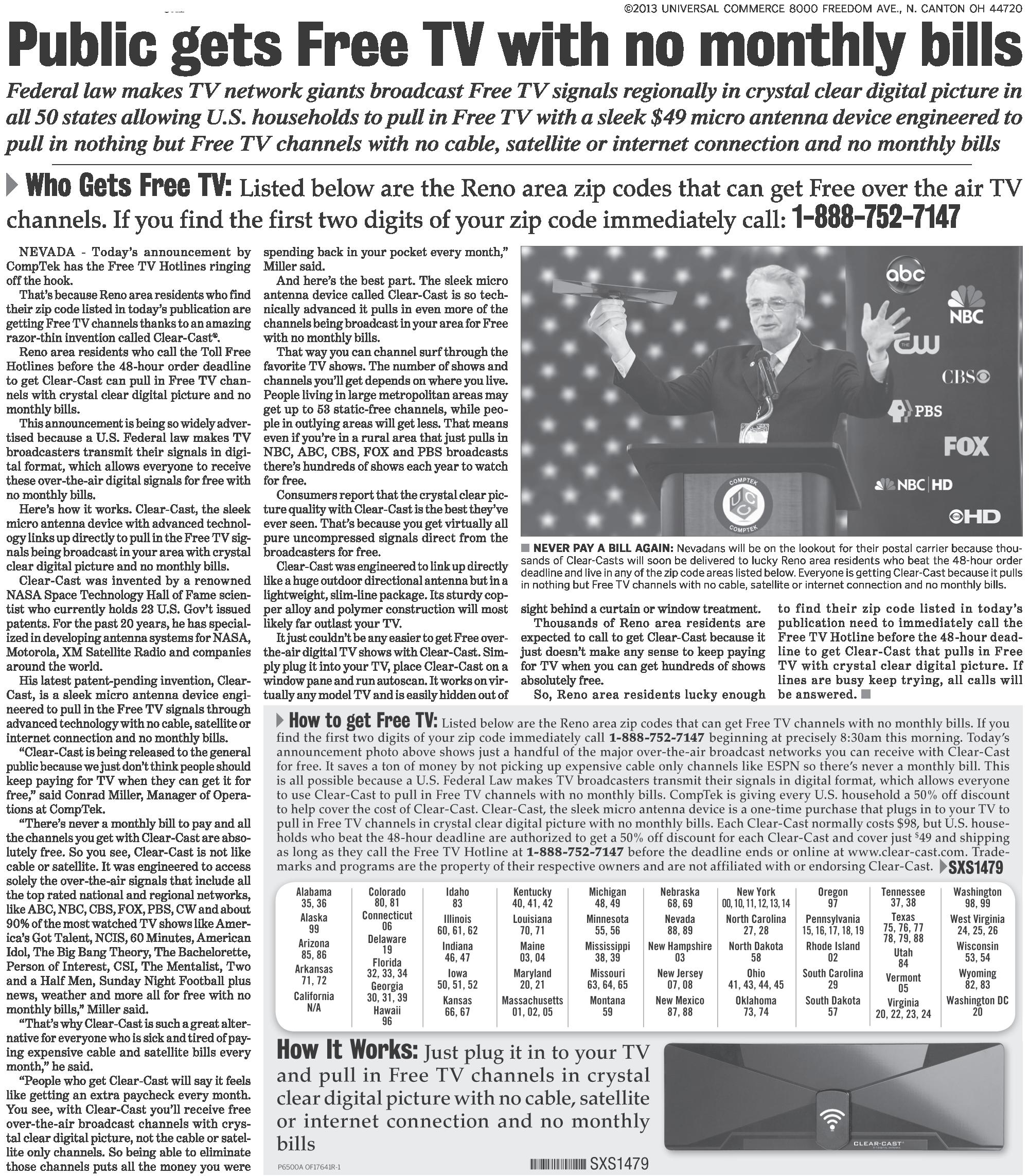
ThiS ModeRn WoRld by tom tomorrow
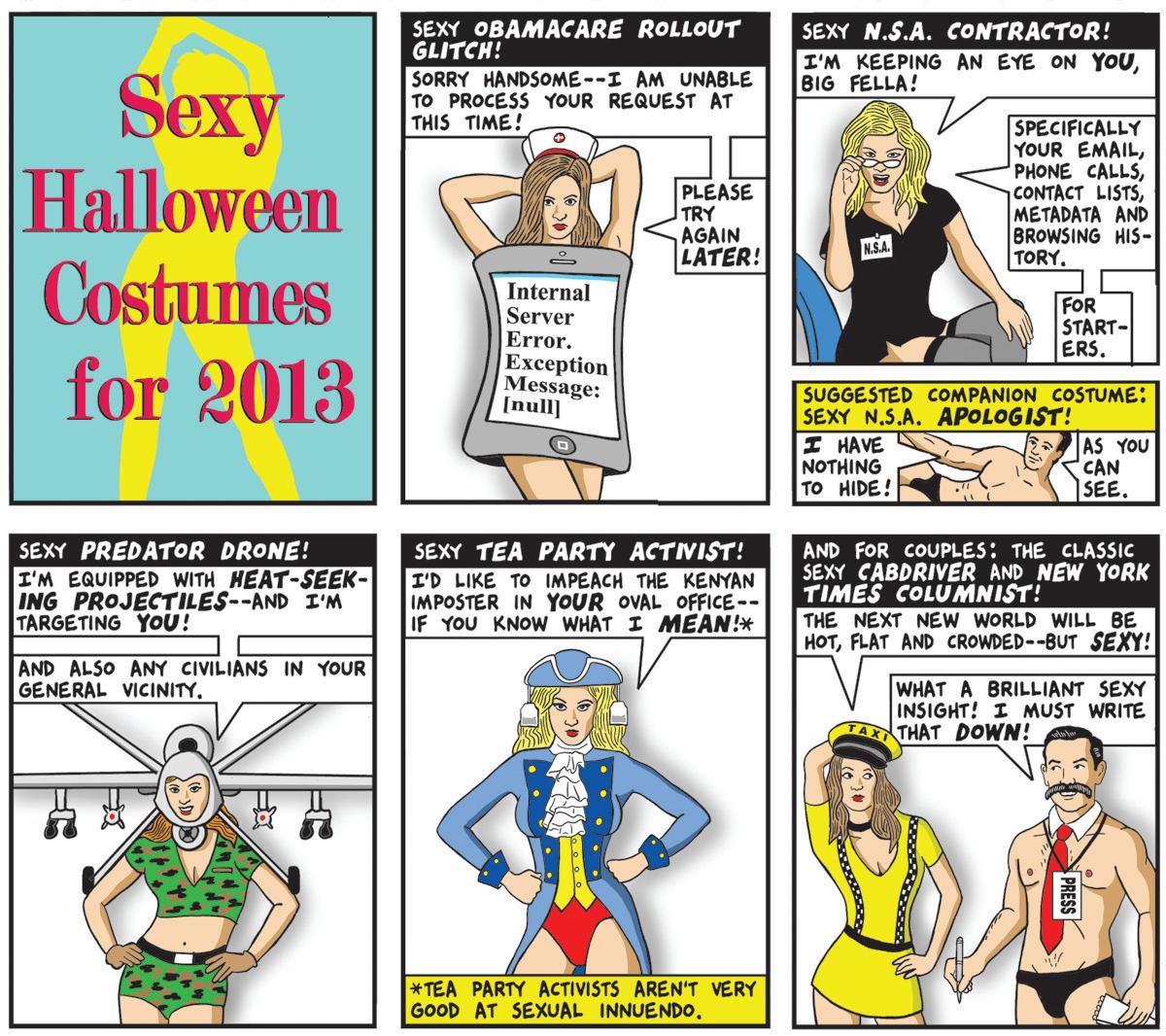
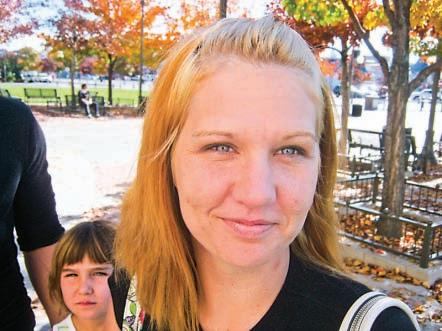
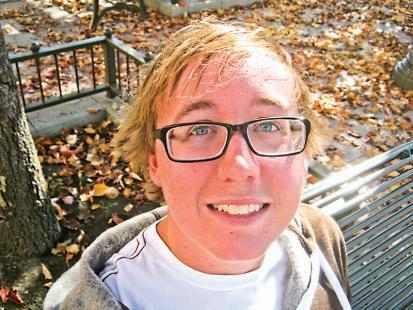
Asked in downtown Sparks
Bobby Willmes
Marketer [Problems] are going to happen no matter what. I think they are safe. I went though Washoe schools, and I always felt safe. I have faith in the schools.
Ashley Pugh
Cashier I think they’re as safe as they can be. I don’t think we’re any more dangerous than anywhere else.
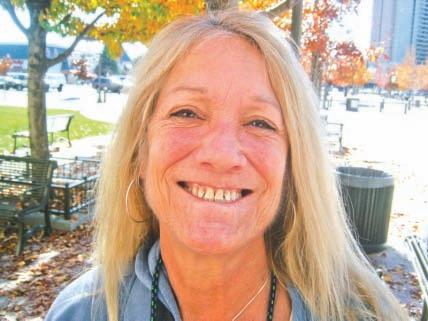
It’s the law. Follow it. Are schools safe?
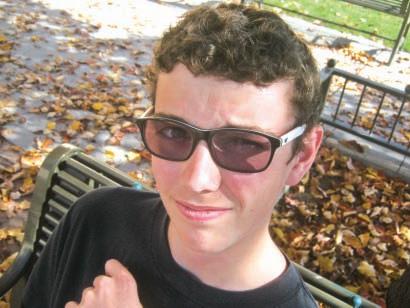
The shooting at Sparks Middle School was a tragedy. Sparks Middle School math teacher Michael Landsberry is a true hero. In his last moments, Jose Reyes was a murderer. Now he’s a memory, not a minor, not legally a person.
Unfortunately, this incident will fade from our memories far too quickly. Members of this newspaper staff are already ready to move on. In fact, it’s that consideration that made us run it on the cover now instead of next week when it just would have reinvigorated a discussion that had already begun to move away from this emotional trauma in our community.
One of the lasting effects of this tragedy, though, will be the debate that took place as to whether Reyes’ name should have been released. It took the place of discussions about gun violence, mental illness and school safety that we should have been having.
Even people we typically agree with, like Cory Farley, weighed in, asking the questions: “Do you want to know the name of the 12-year-old who shot Sparks teacher Mike Landsberry last week? Why? What purpose would it serve?”
He then goes on to say, “Two arguments I’ve seen are that knowing the name is important to understanding the ’circumstances’ of the case, and that it will help the community heal.”
These are strawman arguments that have nothing to do with why that information should have been released immediately.
The reason that name should have been released is because the law says it should be released. It’s none of Sparks Police Department’s business why residents or journalists wanted it released. It’s the law. It’s never a public agency’s business when a citizen or a journalist goes in and asks for public information. It’s ours, we own it.
And when law enforcement agencies start breaking the law and then have their attorney transparently lying about it by saying “[the department] has not generated any document that would be considered a ‘record’ subject to dissemination under the provisions of (Nevada Revised Statutes) Chapter 239,” we as a community have got a problem. What Chapter 239 says is that all public records are open unless there is an exception in the law—and neither the Sparks police nor their attorney cited such an exception.
It’s becoming an embarrassingly common practice of local government to hide public documents behind stone walls, mushmouth platitudes and attorney’s privilege. Those agencies drag their feet or simply say, “We’re not giving it up, so sue us,” knowing full well that few media outlets, and even fewer private citizens, have the money to sue a government agency to get public information. Our taxes pay their lawyers to hide our information from us.
We don’t care what laudatory reasons the Sparks Police Department claimed when it decided to break the law and withhold public information. We may even respect the sentiment behind those reasons, although we expect there will be more to this story of special treatment. Sparks Police Department is a law enforcement agency, and it’s Sparks Police Department’s job to enforce the law. “The law” includes public records laws.
Our community should have been talking about school violence, not about whether police should be above the law. Ω Brandon Fisher

Student No, because there could be shooters in our schools. I just feel like it could happen once, it could happen again.
Martin Mason
Student I don’t think so because there could be any kids coming in with a gun. Recently, there are kids who just go through probably bad stuff at home or from bullying or whatever.
Gina Greterman
Retiree I think it’s just the way kids are brought up these days—no respect. They’re missing something so they’re taking it out on others that way.










